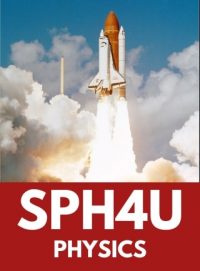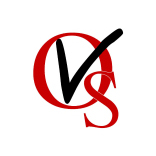SPH4U - Grade 12 Physics

Course Description For SPH4U Grade 12 Physics Online Course
Grade 12 Physics allows students to deepen their understanding of physics concepts and theories. In this course, students will continue their exploration of energy transformations and the forces that affect motion. They will investigate electrical, gravitational, and magnetic fields, as well as electromagnetic radiation. Students will also have the chance to explore topics such as the wave nature of light, quantum mechanics, and special relativity. Throughout the course, they will further develop their scientific investigation skills, learning how to analyze data related to a variety of physics concepts and principles both qualitatively and quantitatively. Students will also consider the impact of technological applications of physics on society and the environment.
Summary Of Units And Timelines For Grade 12 Physics SPH4U
Below is the suggested sequence of course unit delivery as well as the recommended number of hours to complete the respective unit. For complete details of targeted expectations within each unit and activity, please see each Unit Overview found in the SPH4U course profile.
| Unit Order | Unit Name | Suggested Time |
|---|---|---|
| Unit 0 | Prerequisite Review & Kinematics | 10 Hours |
| Unit 1 | Force and Motion: Dynamics | 20 Hours |
| Unit 2 | Energy and Momentum | 20 Hours |
| Mid Semester Point | ||
| Unit 3 | Electric, Gravitational and Magnetic Fields | 20 Hours |
| Unit 4 | The Wave Nature of Light | 20 Hours |
| Unit 5 | Modern Physics | 18 Hours |
| FINAL | Final Exam | 2 Hours |
| View Sample Gradebook Total | 110 Hours | |
Please be aware that, as per Ministry guidelines, OVS has a mandatory minimum requirement of 14 days enrollment for students to be eligible for a midterm report card and 28 days enrollment to be eligible for a final report card.
Fundamental Concepts Covered in Grade 12 Online Course
This course enables students to deepen their understanding of physics concepts and theories. Students will continue their exploration of energy transformations and the forces that affect motion, and will investigate electrical, gravitational, and magnetic fields and electromagnetic radiation. Students will also explore the wave nature of light, quantum mechanics, and special relativity. They will further develop their scientific investigation skills, learning, for example, how to analyse, qualitatively and quantitatively, data related to a variety of physics concepts and principles. Students will also consider the impact of technological applications of physics on society and the environment.
Teaching and Learning Strategies in an Online School
Teachers will bring enthusiasm and varied teaching and assessment approaches to the classroom, addressing individual students’ needs and ensuring sound learning opportunities for every student. The activities offered should enable students to relate and apply these concepts to the social, environmental, and economical conditions and concerns of the world in which they live. Opportunities to relate knowledge and skills to these wider contexts will motivate students to learn in a meaningful way and to become life-long learners. Teachers will to help students understand that problem solving of any kind often requires a considerable expenditure of time and energy and a good deal of perseverance. Teachers also will encourage students to investigate, to reason, to explore alternative solutions and to take the risks necessary to become successful problem solvers. Effective instructional approaches and learning activities draw on students’ prior knowledge, capture their interest, and encourage meaningful practise both inside and outside the classroom. Students will be engaged when they are able to see the connection between the scientific concepts they are learning and their application in the world around them and in real-life situations. Due to its importance, students will have opportunities to learn in a variety of ways- individually, cooperatively, independently, with teacher direction, through hands-on experiences, and through examples followed by practice. The approaches and strategies teachers use will vary according to both the object of the learning and the needs of the students. Teachers will accomplish this in an online environment with the use of virtual labs, online simulation, animations, videos, discussion forums, live chat, and other interactive objects.
Assessment & Evaluation
As summarized in Growing Success 2010, the primary purpose of assessment and evaluation is to improve student learning. Information gathered through assessment helps teachers to determine students’ strengths and weaknesses in their achievement of the curriculum expectations in each course.
This information also serves to guide teachers in adapting curriculum and instructional approaches to students’ needs and in assessing the overall effectiveness of programs and classroom practices. As part of assessment, teachers provide students with descriptive feedback that guides their efforts towards improvement. Evaluation refers to the process of judging the quality of student work on the basis of established criteria, and assigning a value to represent that quality. All curriculum expectations must be accounted for in instruction, but evaluation focuses on students’ achievement of the overall expectations.
A students’ achievement of the overall expectations is evaluated on the basis of his or her achievement of related specific expectations. Teachers will use their professional judgement to determine which specific expectations should be used to evaluate achievement of overall expectations, and which ones will be covered in instruction and assessment but not necessarily evaluated. In order to ensure that assessment and evaluation are valid and reliable, and that they lead to the improvement of student learning, teachers must use assessment and evaluation strategies that:
- Address both what students learn and how well they learn
- Are based both on the categories of knowledge and skills and on the achievement level descriptions given in the achievement chart
- Are varied in nature, administered over a period of time, and designed to provide opportunities for students to demonstrate the full range of their learning
- Are appropriate for the learning activities used, the purposes of instruction, and the needs and experiences of the students
- Are fair to all students
- Accommodate students with special education needs, consistent with the strategies outlined in their Individual Education Plan
- Accommodate the needs of students who are learning the language of instruction
- Ensure that each student is given clear directions for improvement
- Promote students’ ability to assess their own learning and to set specific goals
- Include the use of samples of students’ work that provide evidence of their achievement
- Are communicated clearly to students and parents at the beginning of the school year and at other appropriate points throughout the school year.
The achievement chart outlines four categories of knowledge and skills. They include; knowledge and understanding, thinking, communication and application. Teachers will ensure that student work is assessed and/or evaluated in a balanced manner with respect to the four categories, and that achievement of particular expectations is considered within the appropriate categories. A final grade is recorded for this course, and a credit is granted and recorded for this course if the student’s grade is 50% or higher. The final grade for this course will be determined as follows:
- Seventy percent of the grade will be based on evaluations conducted throughout the course. This portion of the grade should reflect the student’s most consistent level of achievement throughout the course, although special consideration should be given to more recent evidence of achievement.
- Thirty percent of the grade will be based on a final evaluation and administered towards the end of the course.
Accommodations for students with an IEP in an Online School
All students can succeed. Some students are able, with certain accommodations, to participate in the regular course curriculum and to demonstrate learning independently. Accommodations allow access to the course without any changes to the knowledge and skills the student is expected to demonstrate. The accommodations required to facilitate the student’s learning can be identified by the teacher, but recommendations from a School Board generated Individual Education Plan (IEP) if available can also be consulted. Instruction based on principles of universal design and differentiated instruction focuses on the provision of accommodations to meet the diverse needs of learners.
Examples of accommodations (but not limited to) include:
- Adjustment and or extension of time required to complete assignments or summative tasks
- Providing alternative assignments or summative tasks
- Use of scribes and/or other assistive technologies
- Simplifying the language of instruction
Resources
Teachers will bring additional resources and teaching materials that provide a rich and diverse learning environment. Units in this course profile make specific reference to the intended textbook for this course but can be substituted for any relevant and approved text.
- Hirsch, Alan J. Nelson Physics 12. Toronto: Nelson Thomson Learning, 2003. Print. ISBN 0176259880
- Gizmos! ExploreLearning. Web. 16 June 2010.
- “PhET: Free Online Physics, Chemistry, Biology, Earth Science and Math Simulations.” Web. 17 June 2010.
- “Advanced Placement Physics B : Free Education : Download & Streaming : Internet Archive.” Internet Archive: Free Movies, Music, Books & Wayback Machine. Web. 17 June 2010.
Reference: Science, The Ontario Curriculum, Grades 11 and 12, 2008 (Revised) Ministry of Education of Ontario
Ontario Secondary School Diploma (OSSD) Requirements for all course.
Sample Lesson Video: Grade 12 Physics (SPH4U)
Frequently Asked Questions
What is SPH4U?
SPH4U is a Grade 12 Physics course at a University preparation level.
What are 4U courses?
4U refers to the Grade level of the courses and the pathway. 4 means it is a grade 12 course and U means it is a university preparation course.
What is the prerequisite course for SPH4U?
How long does it take to complete the SPH4U online course?
At Ontario Virtual School (OVS) you can complete an online highschool credit courses as quickly as 4 weeks, or take as long as 12 months.
Will my marks be sent directly to OUAC or OCAS?
Student & Parent Recommendations
Google Reviews for SPH4U - Grade 12 Physics



